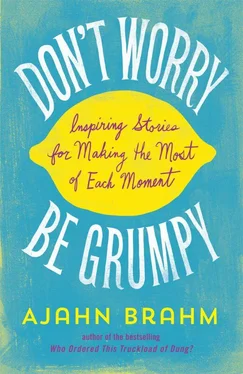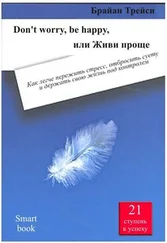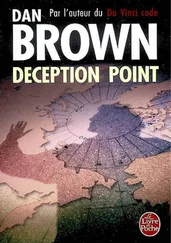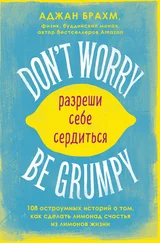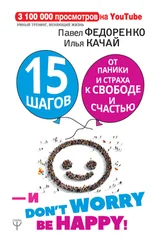This time, the husband was not annoyed. He walked straight to the egg stall with the young man following him, hurling many an insult.
“Don’t mind him,” said the lady selling the eggs. “He does this to everyone. He’s crazy. He had an accident when he was young.”
“Yes, I know. Poor boy,” said the husband as he paid for the eggs.
The young man followed the husband to the edge of the market, shouting ever-louder obscenities at him. But this time it never made the husband upset. Because he now knew that the young man was mad.
When you understand this story, then the next time that someone calls you terrible names, or your partner gets angry at you, just assume that they have hit their head today and are suffering momentary brain damage. For in Buddhism, getting angry at others and insulting them is called “temporary insanity.”
When you realize that the person getting angry at you is temporarily insane, you are able to respond with equanimity and even compassion: “You poor thing!”
The death of a loved one changes our lives forever. Even the deaths of those we don’t know, such as the thousands who die in natural disasters, alters the way we think. Death is a fact of life, and when understood, it teaches us how to care.
Many years ago in Thailand, my teacher, Ajahn Chah, raised his ceramic mug.
“See this!” he told us. “It has a crack in it.”
I looked closely at the mug but could see no crack.
“The crack is invisible now,” Ajahn Chah continued, “but it’s there. One day someone will drop this mug, and the crack will appear and split my mug apart. That is its destiny.
“But if my mug were made out of plastic,” explained my teacher, “then it would have no such destiny and no invisible crack. You could drop it, knock it, or even kick it, and it would not break. You could be heedless because it was unbreakable. But because my mug is fragile, for that reason you must care for it.
“In the same way,” Ajahn Chah began to emphasize, “your body has a crack in it. The crack is invisible right now, but it is there. It is called your future death. One day there will be an accident, a disease, or old age; then the crack will appear and you will die. That is your destiny.
“If your life lasted forever,” Ajahn Chah concluded, “if your life were unbreakable like a plastic mug, then you could be heedless. So it is precisely because our lives are fragile, because it is our destiny to die, that we must care.”
Understanding that relationships are also fragile like a ceramic mug is why we must care for each other. Comprehending that happiness has a crack in it teaches us to never to take joy for granted. Realizing that our lives will one day break apart makes us see that each moment is precious.
A Tale of Two Chicken Farmers
Once, there were two chicken farmers. The first rose early in the morning, picked up a basket, and went into the henhouse to collect the produce from the night before. He proceeded to fill his basket with chicken shit, leaving the eggs on the ground to rot. He then brought the basket of chicken shit back into the house, where it made a very bad smell. His family was very upset with that stupid chicken farmer.
The second chicken farmer picked up a basket and entered his henhouse also to collect the produce of the night before. But he filled his basket with eggs, leaving the chicken shit to rot in the shed. It would become valuable fertilizer later, but you don’t bring it into the house with you! Bringing only the eggs back home, he cooked a delicious omelette for his family and later sold the remaining eggs in the market for cash. His family was very pleased with that clever chicken farmer.
The meaning of this parable is this. When you collect the produce of your past, what do you put in your basket and bring home with you? Are you one of those people who collect all the unpleasant experiences of today (or of your life) and bring them home with you: “Darling, I got pulled over for speeding today!” “Honey, the boss was really angry at me at work!” Or are you someone who leaves all those negative experiences in the past, where they belong, and only recollects the happy moments?
Are you a shit collector or an egg collector?
Many people have a photo album. In it they keep memories of the happiest of times. There may be a photo of them playing by the beach when they were very young. There may be the picture with their proud parents at their graduation ceremony. There will be many shots of their wedding that captures their love at one of its highest points. And there will be holiday snapshots too.
But you will never find in your album any photographs of miserable moments of your life. Absent is the photo of you outside the principal’s office at school. Missing is any photo of you studying hard late into the night for your exams. No one that I know has a picture of their divorce in their album, nor one of them in a hospital bed terribly sick, nor stuck in busy traffic on the way to work on a Monday morning! Such depressing shots never find their way into anyone’s photo album.
Yet there is another photo album that we keep in our heads called our memory. In that album, we include so many negative photographs. There you find so many snapshots of insulting arguments, many pictures of the times when you were so badly let down, and several montages of the occasions where you were treated cruelly. There are surprisingly few photos in that album of happy moments.
This is crazy!
So let’s do a purge of the photo album in our head. Delete the uninspiring memories. Trash them. They do not belong in this album. In their place, put the same sort of memories that you have in a real photo album. Paste in the happiness of when you made up with your partner, when there was that unexpected moment of real kindness, or whenever the clouds parted and the sun shone with extraordinary beauty. Keep those photos in your memory. Then when you have a few spare moments, you will find yourself turning its pages with a smile, or even with laughter.
How do you delete the bad memories of the past?
Returning from the morning almsround in Thailand many years ago, Ajahn Chah picked up a stick by the side of the path and asked, “How heavy is this stick?” Before anyone answered, Ajahn Chah threw the stick into the bushes and said, “A stick is only heavy when you hold it. When you throw it away, the heaviness is gone.”
Adapting this principle, I suggested to my own students that we perform the “stick ceremony.” You write down on a piece of paper as many troublesome bad memories as you can recall. Then find a stick and wrap the piece of paper around one end of the stick, securing it with a rubber band or some tape. Next find a secluded place in the forest, hold the stick in your hand, and contemplate the weight of all those bad memories. When you are ready, with all the force that you can muster, throw that stick as far away as you can!
To let go of bad memories, you first have to acknowledge them. They need to be honestly recollected. Hence, writing them down on paper. Next, some physical act or ceremony is required to give the letting go some force. Simply thinking “I will now let this all go” does not work. The steps of wrapping the paper around the stick, walking into the forest with the purpose of letting the bad stuff go, feeling the weight of the stick in your grasp, and then the moment of release when you chuck it all away as far as you can: all these steps reinforce the intention. They give it power. It works. You have pressed the delete button.
Then someone complained that I was responsible for others making a mess in the forest. That I was encouraging environmental vandalism! So I adapted the strategy as follows:
Читать дальше
